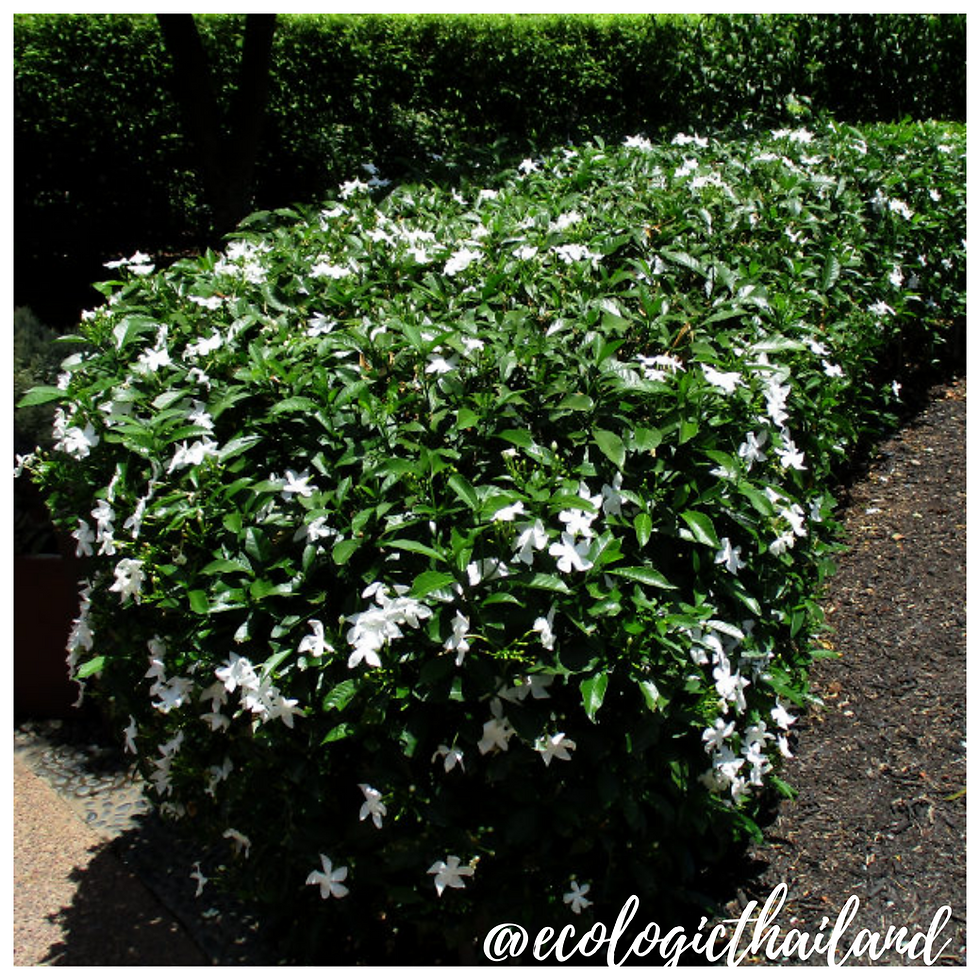Yellow Elder
- Eco-Logic Resort
- Mar 14, 2021
- 2 min read
SoiThong | สร้อยทอง | Tecoma stans
Family: Bignoniaceae - Genus: Tecoma

The beautiful flowers on the yellow elder can be seen along the road in Paksong and on the premises of TCDF and Eco-Logic.
Yellow Elder is a species of flowering perennial shrub. The shrub is also known as yellow trumpetbush, yellow bells, ginger-thomas. It is an attractive plant, with sharply toothed, pinnate green leaves and it bears large, showy, bright golden yellow trumpet-shaped flowers. The flowers attract bees, butterflies, and sunbirds. The plant produces pods containing yellow seeds with papery wings.
The shrub can flower all year round.

THE PLANT
Yellow Elder is a fast-growing shrub or small tree that can reach a height of 5 - 8 meters. It has a rounded shape and evergreen foliage.
The younger stems are smooth, hairless and greenish in color. They are slightly four-angled in cross-section and turn pale brown or reddish-brown in color as they age.
The bark on the main stem is light brown to pale grey in color, furrowed, and relatively rough in texture.

THE LEAVES
The leaves of the Yellow Elder are 10 to 25 centimeter long, and are arranged in pairs . The leaves are narrowly egg-shaped with a broad end at base and have a pointed tip. Their margins are irregularly and sharply toothed and they are mostly hairless, though a few hairs may be present on their undersides.

THE FLOWERS
The showy flowers of the Yellow Elder are borne in several-flowered clusters (5-15 centimeter long) that are first produced at the ends of the branches. and then later in the leaf forks near the tips of the branches. The flowers are bright yellow in color, tubular in shape, and borne on short stalks that are somewhat curved or twisted. The flower tube is 30-50 mm long and has five rounded lobes that are 8-30 mm long. There are several faint reddish lines in the throat of the flower, which is slightly ridged and hairy.
Flowering may occur throughout the year. The flower buds pop when squeezed.

THE FRUIT
The fruit are large, elongated, and somewhat flattened capsules (10-30 centimeter long and 5-20 millimeter wide). These fruit turn from green to brown in color as they mature and finally split open to release numerous papery seeds.
The seeds are very flat, oblong in shape (7-8 millimeter long and about 4 millimeter wide), and have a transparent wing at each end.
CULINARY USES
There are no edible uses known of the Yellow Elder.
TRADITIONAL MEDICINAL USE
NOTE: please take advice from a doctor if you are planning to use herbal medicine.
Almost all parts (leaves, root, flower, seed, fruit, bark) of the plant is reported for its medicinal use. Yellow Elder is a herbal medicine used for treatment of diabetes, digestive problems, control of yeast infections, as powerful diuretic, vermifuge and tonic.
A strong leaf and root decoction is taken orally as a diuretic, to treat syphilis or for intestinal worms
INTO THE WILD: a down to earth experience

For guests and visitors to Paksong we organize weekly tours "The Edible Forest" and Foraging weekends: Into the Wild. We work with local guides to take you in the jungle of Paksong. After foraging, we will cook a meal with the ingredients, using bamboo together with you!
Come and join and learn about the abundance of food that nature gives us!
INTO THE WILD!


















Comments